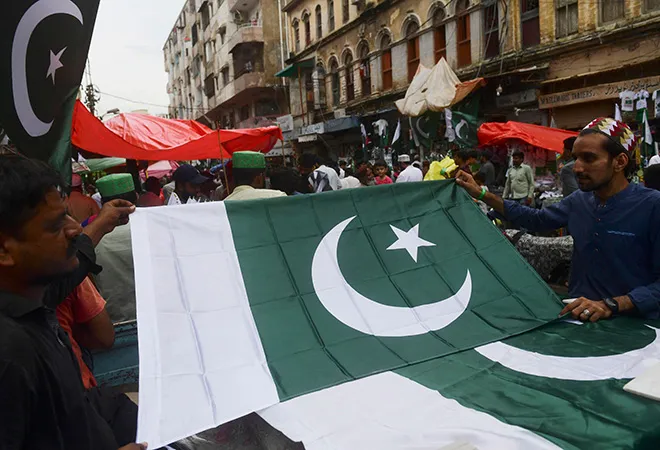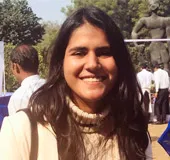
Democracy in Pakistan is the brief interregnum between quasi or full-blown military rule. The last 15 years saw a sort of quasi-democracy in which elected governments have been undermined, sabotaged, and destabilised by powerful but unelected and unaccountable institutions of the state, in particular, the military and judiciary. The judiciary-military combine which replaced the old military-bureaucratic complex has ironically given rise to forces—Imran Khan—that holds the potential of dividing the military-judiciary compact and restoring civil-military balance, perhaps eventually even ensuring civilian supremacy. At the same time, the political turmoil unleashed by Imran Khan’s refusal to walk away quietly after his ouster in a no-confidence motion has created a situation in which the possibility of another direct intervention by the military to effect a hard reset of the political system cannot entirely be ruled out. Many discerning observers who feel that the current politico-economic crisis cannot continue indefinitely are discussing this possibility.
Imran Khan’s obduracy and the sustained battle that he has unleashed on the streets have made governance a challenge for the PML-N-led coalition.
Since the Shehbaz Sharif-led government ascended to the helm in April 2022, all hopes that a change in leadership will ameliorate the dire situation that the country was facing have been dashed. While the country’s economy remains in the doldrums, the political leadership is found wanting to take any hard reforms to arrest this downward spiral. Imran Khan’s obduracy and the sustained battle that he has unleashed on the streets have made governance a challenge for the PML-N-led coalition. However, trumping all other considerations, the question of the next Chief of Army Staff (COAS), an appointment that determines the calculus of all other institutions in the country, has become the biggest challenge not only for the government but also for the Opposition and, indeed, the military establishment itself. With the current COAS, General Qamar Javed Bajwa set to retire in November, the question of the next chief is being viewed as the
‘subplot’ driving the political crisis. While the Constitution has tasked the political leadership to determine who would lead the army, the situation on the ground is starkly different, and one that most succinctly explains Pakistan’s tryst with democracy. Back in 2018, when the Imran Khan-led PTI emerged victorious in the general elections, allegations about the contest being manipulated and the army favouring Khan were rampant in the political grapevine. Imran’s first three years in office were distinct for a ‘rare harmony’— “being on one page”—between the government and the army. However, three years into his term, the prospect of the PTI government completing its stint in power vanished in the tussle over the transfer of Lt. Gen Faiz Ahmed, the then ISI chief. The government’s decision to dawdle in notifying the new appointment undermined the understanding that Khan had with the army chief, throwing him out of favour. This constant power struggle between the political leadership and the military establishment, one in which the military has the edge, determines the state of democracy in Pakistan.
Since its inception in 1947, Pakistan has experienced different government types—from the civilian administration to a military dictatorship and sometimes also a hybrid form of governance. However, since 2008, there has been no military coup in the country even though none of the Prime Ministers, no matter the party in power could complete their term in office. With Imran Khan now pushing for an early election to stabilise the country, the question of the success of elections in putting in place a truly representative and accountable government in power props up.
The government’s decision to dawdle in notifying the new appointment undermined the understanding that Khan had with the army chief, throwing him out of favour.
But democracy in Pakistan is not just about elections. Elected governments have been extremely undemocratic in their functioning. They have kowtowed to the military establishment, hounded their opponents, and muzzled the media. Till 2013, there were only two major parties in Pakistan—the Pakistan People’s Party (PPP) and the Pakistan Muslim League-Nawaz (PML-N). Both these parties were dynastic establishments, and power generally oscillated between the two. However, there is a general trend of the party in power facing high
anti-incumbency sentiment. This prospect of losing in the next cycle renders their term useless in terms of facilitating change and introducing reforms. Their priorities then hinge on extracting personal benefits for their aggrandisement and they partake in an oppositional style of working. The domination of one set of coteries in these parties with no inner party democracy further paralyses the policy-making mandate of the government resulting in dissatisfaction and creating fertile ground for the army to employ its machinations.
Whilst the presence of a formidable opposition is imperative for a democracy to be classified as healthy, in Pakistan, the political opposition, instead of furthering the cause of democracy has done the exact opposite. No conspiracy is a no-go area. Every trick in the book, and out of it, is kosher. Of course, all sides adopt a holier-than-thou approach and take pains to insist that they stuck to the letter and spirit of the constitution. Therefore, if Imran Khan claims that his
dharna in 2014 to pull down Nawaz Sharif’s government was constitutional and didn’t violate any law, the Opposition is emphatic that ousting Imran Khan in a no-confidence motion was perfectly lawful and constitutional. Simply put, every opposition sees the military establishment as its ticket to power.
Considering the fragile condition that the economy is in now, reeling from acute economic distress and downturn, a responsible government would have prioritised the welfare of the people and sketched out helpful policies.
The constant schemes and manoeuvrings of the parties in power and the ruthlessness of the military establishment, apart from creating a spectacle of the electoral process and the power of the vote, also adversely affect the rights of the people and their freedom to express themselves. In the tug of war to outsmart their opponents, the media more often than not gets caught in the crossfire, and quite often willingly so. A recent
constitutional petition submitted to the Supreme Court asks the government to put in place a set of directions prohibiting the defamation of the institutions of the state and officials. This came against the backdrop of the controversy over the disqualification of the ARY news channel on charges of airing seditious content and criticising the current government. The channel’s senior executive and other officials were arrested while many anchors went into hiding. Ironically, ARY was an enthusiastic partner of the military establishment when its other rivals were given similar treatment in the past. Instances of disappearance and killings of journalists, revocation of licenses of media houses, using trolls to discredit critical commentators, and the growing trend of vigilante justice, with people being killed or hounded for uttering ‘blasphemous’ pronouncements, all make a mockery of democratic principles. Governments also use the legislative route to curb debate and dissent, as the case of the Prevention of Electronic Crimes Act (2016) shows.
Afflicted with an ‘elite capture’ of the major institutions, the Pakistani state fails to assuage the needs and desires of the majority—the section most affected by the state’s policies (or lack thereof). Considering the fragile condition that the economy is in now, reeling from acute economic distress and downturn, a responsible government would have prioritised the welfare of the people and sketched out helpful policies. Instead, the internal politics of Islamabad has pushed governance to the margins. For democracy to deeply entrench itself in the country, a significant revamping of the structural scaffolding that makes Pakistan is crucial. As a first step, this restructuring necessitates a commitment on the part of the political leadership, as also the military, to dial down their powers and create space for reforms, a prospect that seems bleak in the background of the current quagmire that the country is caught in.
The views expressed above belong to the author(s). ORF research and analyses now available on Telegram! Click here to access our curated content — blogs, longforms and interviews.



 Democracy in Pakistan is the brief interregnum between quasi or full-blown military rule. The last 15 years saw a sort of quasi-democracy in which elected governments have been undermined, sabotaged, and destabilised by powerful but unelected and unaccountable institutions of the state, in particular, the military and judiciary. The judiciary-military combine which replaced the old military-bureaucratic complex has ironically given rise to forces—Imran Khan—that holds the potential of dividing the military-judiciary compact and restoring civil-military balance, perhaps eventually even ensuring civilian supremacy. At the same time, the political turmoil unleashed by Imran Khan’s refusal to walk away quietly after his ouster in a no-confidence motion has created a situation in which the possibility of another direct intervention by the military to effect a hard reset of the political system cannot entirely be ruled out. Many discerning observers who feel that the current politico-economic crisis cannot continue indefinitely are discussing this possibility.
Democracy in Pakistan is the brief interregnum between quasi or full-blown military rule. The last 15 years saw a sort of quasi-democracy in which elected governments have been undermined, sabotaged, and destabilised by powerful but unelected and unaccountable institutions of the state, in particular, the military and judiciary. The judiciary-military combine which replaced the old military-bureaucratic complex has ironically given rise to forces—Imran Khan—that holds the potential of dividing the military-judiciary compact and restoring civil-military balance, perhaps eventually even ensuring civilian supremacy. At the same time, the political turmoil unleashed by Imran Khan’s refusal to walk away quietly after his ouster in a no-confidence motion has created a situation in which the possibility of another direct intervention by the military to effect a hard reset of the political system cannot entirely be ruled out. Many discerning observers who feel that the current politico-economic crisis cannot continue indefinitely are discussing this possibility.
 PREV
PREV



